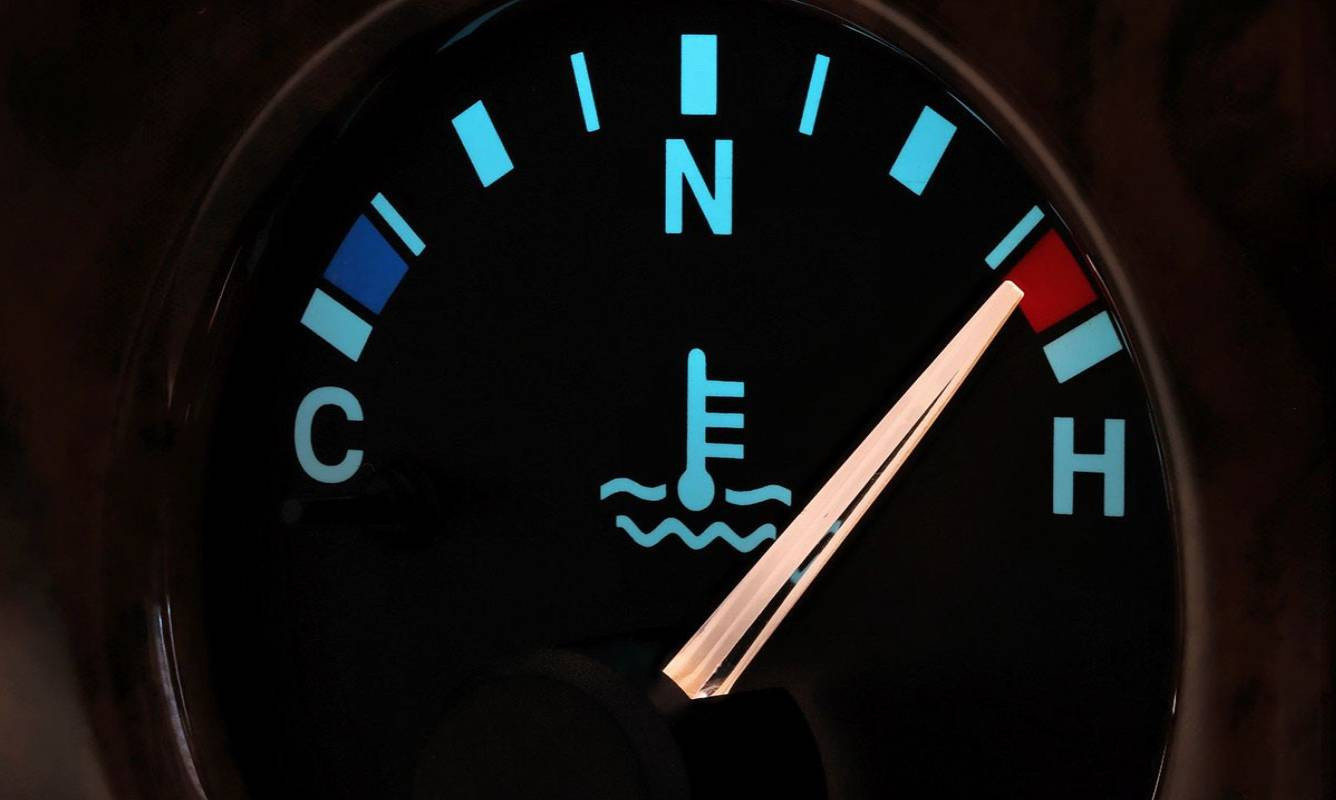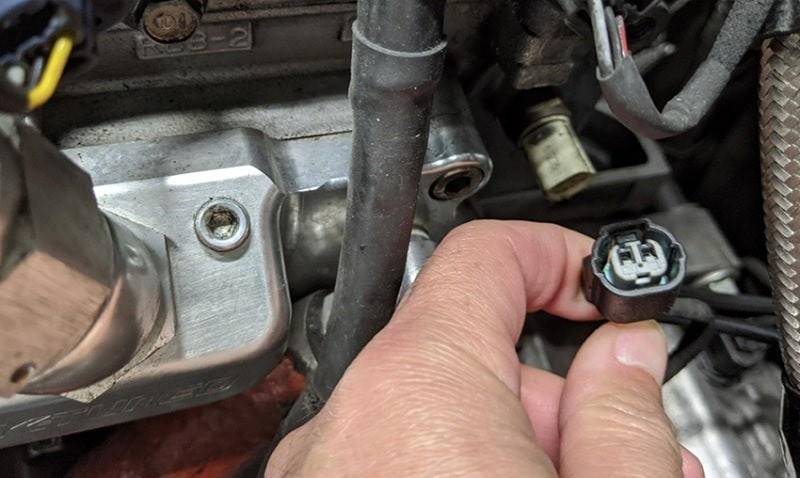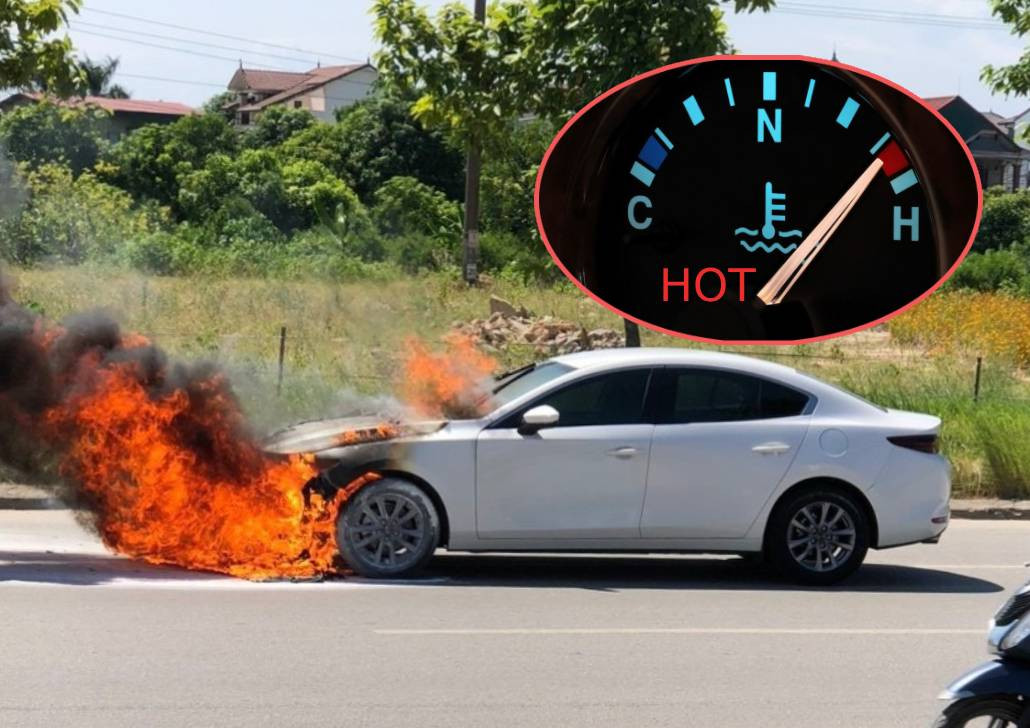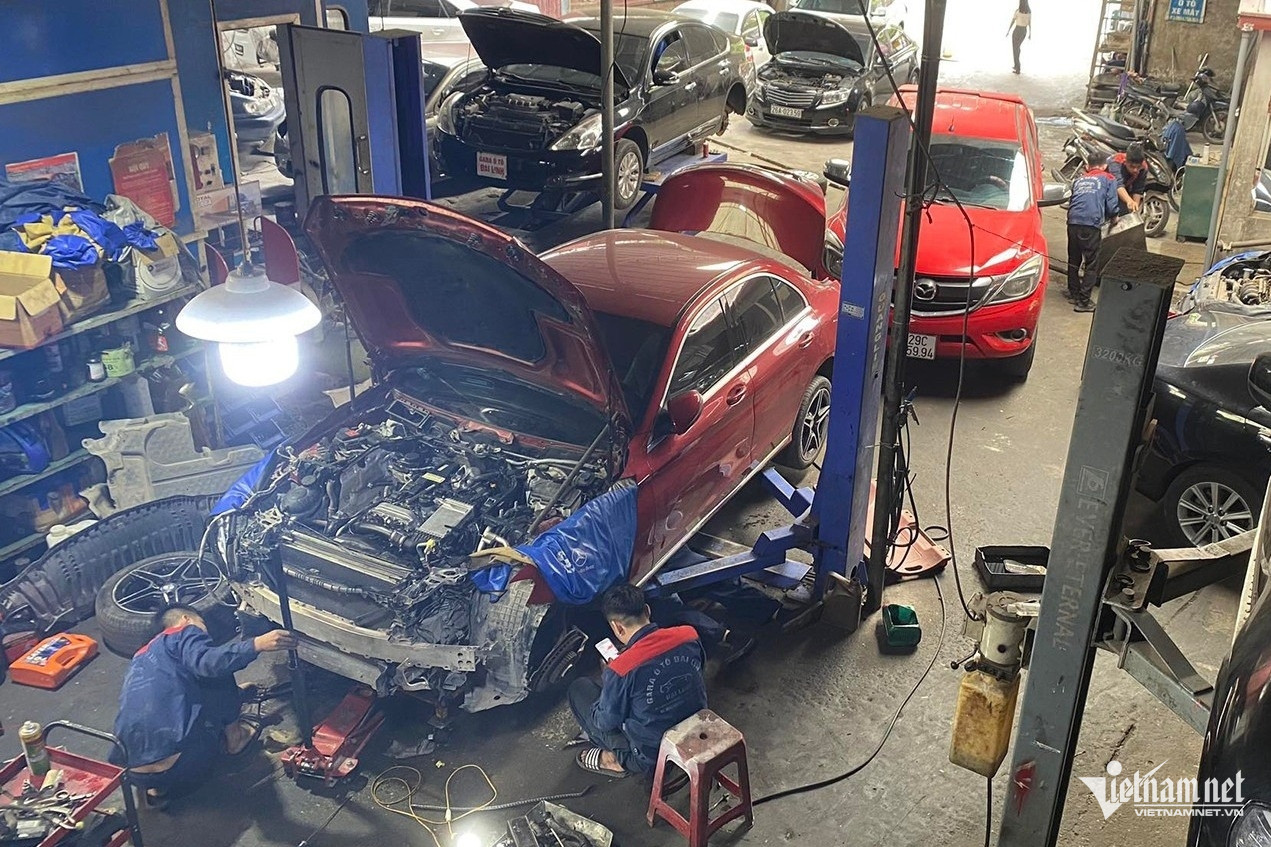A spate of recent car fires has left many people confused and wondering if there’s a way to detect a fire before it happens. Can the engine temperature gauge (displayed on the dashboard cluster) give any indication that a car is about to catch fire?

Can the engine temperature gauge predict a car fire? (Illustration: Oto365)
According to automotive engineer Le Tien Hieu, consulting service advisor at Bao Tin auto garage (Ha Dong, Hanoi), car fires can originate from multiple locations and have various causes. One rare reason could be engine overheating, which may lead to a fire.
Engineer Hieu explained that, in most cars, the engine temperature is displayed on the dashboard gauge. This temperature gauge relies on voltage signals from a temperature sensor attached to the engine block. Some cars also have an additional sensor at the thermostat to compare the outgoing coolant temperature.

Temperature sensor for coolant attached to the engine block. (Illustration: Otohui)
“Since the temperature gauge measures the coolant temperature at a single point in the engine, it won’t provide any advance warning if the fire is caused by other factors such as electrical shorts, fuel leaks, or debris catching fire under the vehicle,” said Engineer Le Tien Hieu. “In fact, the temperature gauge might remain unchanged even as the car is about to catch fire.”

The temperature gauge on the dashboard is unlikely to indicate a potential car fire. (Illustration: TL)
Further explaining the mechanism of the engine temperature gauge, the automotive engineer mentioned that the coolant temperature typically fluctuates between 70-100 degrees Celsius, depending on the vehicle’s operating conditions, and is relatively stable. However, when the engine overheats and the coolant boils (at around 110-120 degrees Celsius), the dashboard temperature gauge will spike unusually (reaching the ‘H’ mark or the red zone, depending on the display).
At this point, there could be several issues with the car, such as a coolant leak leading to insufficient coolant for engine cooling, a faulty cooling fan, a malfunctioning water pump, a stuck thermostat preventing coolant circulation, or a clogged radiator due to dirt and debris.

Car overheating can lead to unpredictable consequences and costly repairs. (Photo: Hoang Hiep)
The expert suggested that, regardless of the reason for the temperature gauge spiking, it is advisable to pull over and perform an initial inspection. Check for coolant leaks, smoke coming from the engine compartment, whether the cooling fan is operational, and if there’s a broken fan belt, as some cars use a belt-driven water pump or cooling fan.
After ruling out major malfunctions, allow the car to cool down naturally for 20-30 minutes before opening the coolant reservoir cap to check and refill the coolant if necessary. Then, you can restart the engine and continue driving at moderate revs while keeping a close eye on the temperature gauge.
“If the temperature gauge shows abnormal readings, it’s best to have the car inspected at a garage to identify the exact cause and avoid potential breakdowns on the road,” said Engineer Hieu. “Ignoring the issue could lead to minor inconveniences like being stranded and needing a tow truck, or more severe consequences like a blown head gasket and costly engine overhauls.”
According to Vietnamnet
Is It Safe to Sleep With an Electric Blanket All Night? Expert Tips for Using Electric Blankets Right.
Improper use of electric blankets can pose several health risks. But is it safe to leave an electric blanket on all night while you sleep? And what are the guidelines for using electric blankets safely and effectively? These are the pressing questions that warrant further exploration, as we navigate the intricacies of electric blanket usage to ensure a warm and cozy slumber without compromising well-being.



































